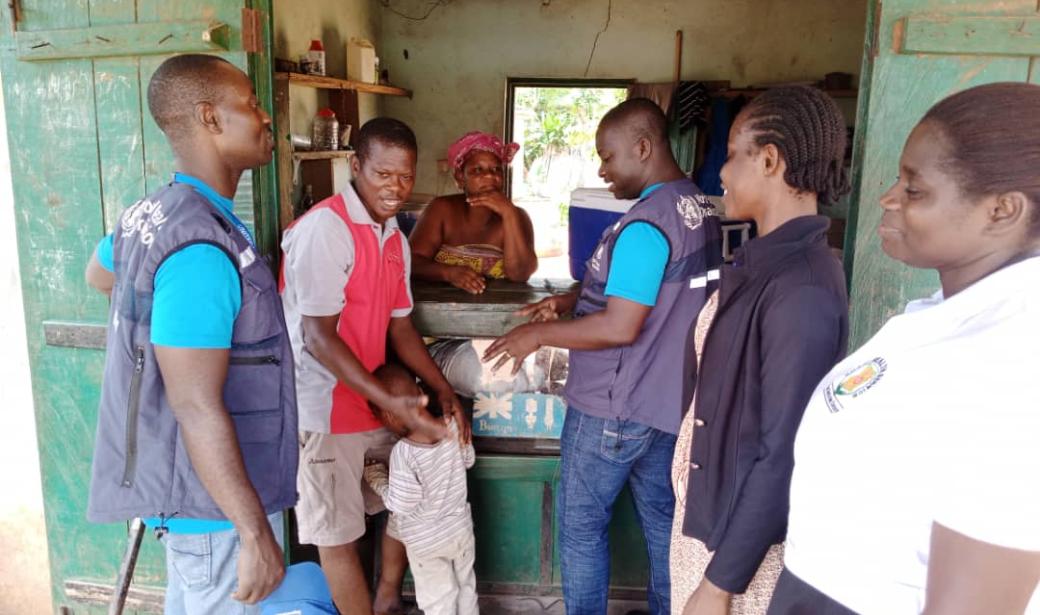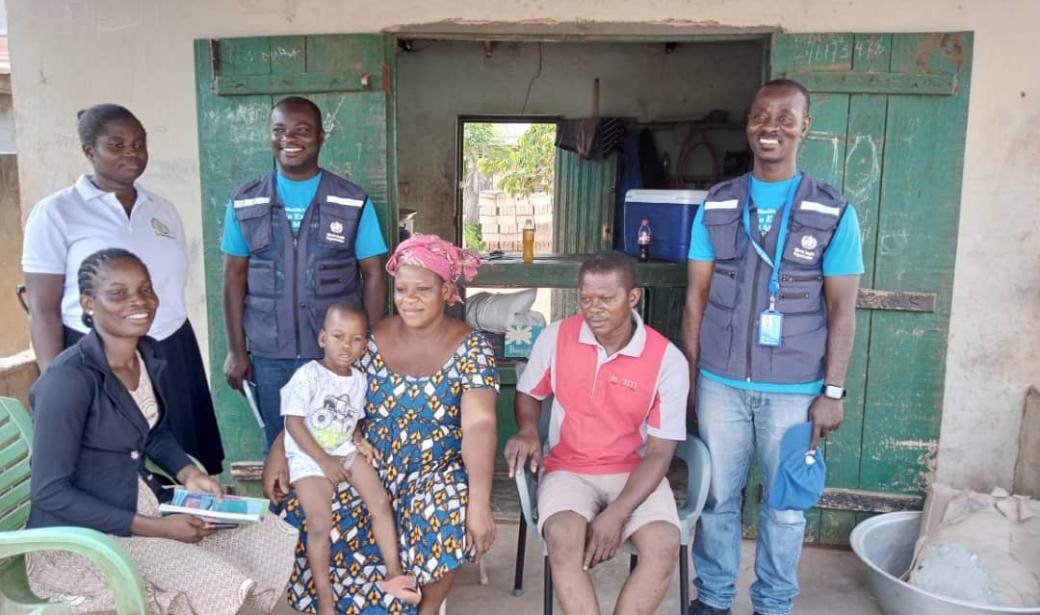In the Ketu North District of Ghana, Erica Doe Hormeku, a passionate Community Health Nurse (CHN) at the Kasu Health Centre, dedicates herself to ensuring every child receives their routine immunization. Brimming with enthusiasm and commitment, Erica tirelessly follows up with caregivers, even those hesitant about vaccinating their children. Despite her best efforts, there are a few who remain adamant, which worries her deeply.
“Some caregivers refuse vaccination for their children, and we follow up to talk with them. Many of these cases have been overturned, but others remain. My fear is that such attitudes are ‘infectious’ and could potentially impact vaccine uptake,” Erica shares.
One such case involved David, a 46-year-old teacher and father of four, who refused to have his youngest child, Dennis, vaccinated, even though his other children were fully vaccinated and remained healthy. At three years old, Dennis had only received the Bacillus Calmette-Guerin (BCG) vaccine at birth. Under Ghana’s national immunization schedule, Dennis should have completed his routine vaccinations by 18 months. However, missed doses can still be administered until age five.
David’s reluctance stemmed from a deep mistrust of vaccines. “My parents told me I was not given any vaccines as a child, but I am healthy. These vaccines contain germs that cause illness instead of the so-called protection. I want to use my son to prove to everyone that vaccines are not relevant,” he said when health workers visited his home.
Dr. Kwadwo Asante-Afari, WHO’s Technical Officer for Risk Communication and Community Engagement, shared his expertise during the discussion, saying, “Vaccines have contributed significantly to the reduction of deaths and illness, especially among children. Some diseases, including measles and polio, that once killed and maimed children are no longer encountered as often”.
After a thorough conversation, David’s stance began to shift. “I see the importance now, and I want to make sure my son is protected”, he said, agreeing to allow Dennis to receive his missed vaccines. A vaccination plan was created with input from the family, addressing concerns about multiple injections. Dennis was immediately vaccinated with oral polio vaccine, inactivated polio vaccine, pentavalent vaccine, and pneumococcal conjugate vaccine, with a follow-up schedule to complete the remaining doses.
Dennis’ mother, Janet, expressed her relief, saying, “It has always been my prayer that my partner agrees to Dennis’ vaccination just as the other children, and I am happy you defied the terrain and came this far to speak with him. I now have the assurance of my son’s protection against vaccine-preventable diseases”.
This successful engagement not only ensured Dennis received his vaccination but also strengthened community trust in immunization. It’s a reminder that changing hearts and minds requires patience, dedication, and a commitment to protecting future generations.
For Additional Information or to Request Interviews, Please contact:
Abdul-Lahie Abdul-Rahim Naa
Communications Officer
WHO Ghana Country Office
Email: abdullahiea@who.int
Tel: +233 20 196 2393




